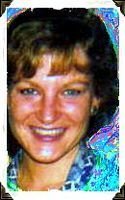Alaşehir / Philadelphia
 Philadelphia lies in a valley at the foot of a mountainous plateau in west central Turkey. The low dark hill in the center of the picture shows the area of the ancient city. The kings of Pergamum founded Philadelphia as an outpost of their realm in the second century B.C. The town was located along an important travel route that linked Pergamum in the north with Laodicea to the south.
Philadelphia lies in a valley at the foot of a mountainous plateau in west central Turkey. The low dark hill in the center of the picture shows the area of the ancient city. The kings of Pergamum founded Philadelphia as an outpost of their realm in the second century B.C. The town was located along an important travel route that linked Pergamum in the north with Laodicea to the south.*(From Wikipedia)
Alaşehir began as perhaps one of the first ancient cities with the name Philadelphia. It was established in 189 BC by King Eumenes II of Pergamon (197-160 BC). Eumenes II named the city for the love of his brother, who would be his successor, Attalus II (159-138 BC), whose loyalty earned him the nickname, "Philadelphos", literally meaning "one who loves his brother". The city is perhaps best-known as the site of one of the seven churches of Asia in the Book of Revelation.
Lacking an heir, Attalus III Philometer, the last of the Attalid kings of Pergamum, bequeathed his kingdom, including Philadelphia, to his Roman allies when he died in 133 BC. Rome set up the province of Asia in 129 BC by combining Ionia and the former Kingdom of Pergamum.
Philadelphia was an independent neutral city, under the influence of the Latin Knights of Rhodes, when taken in 1390 by Sultan Bayezid I and an auxiliary Christian force under the Byzantine emperor Manuel II after a prolonged resistance, when all the other cities of Asia Minor had surrendered. Twelve years later it was captured by Timur, who built a wall with the corpses of his prisoners. A fragment of the ghastly structure is in the library of Lincoln Cathedral.
Philadelphia was the last Byzantine stronghold in inner Asia Minor.
 http://www.luthersem.edu/ckoester/Revelation/Philadelphia/Main.htm
http://www.luthersem.edu/ckoester/Revelation/Philadelphia/Main.htmAn inscription from Philadelphia mentions a number of gods and goddesses. Zeus, the chief god, was said to have commanded people to be pure and to refrain from deceit, murder, theft, adultery, and other types of evil. There was an altar to Hestia, the goddess of hearth and home. The inscription also mentions the savior gods, including Good Fortune, Virtue, Health, and other deities.
REVELATION 3:7
And to the angel of the church in Philadelphia write; These things
saith he that is holy, he that is true, he that hath the key of David,
he that openeth, and no man shutteth; and shutteth, and no man openeth;
ISAIAH 22:22
And the key of the house of David will I lay upon his shoulder;
so he shall open, and none shall shut; and he shall shut, and none
shall open.
This is the way he addresses the Church of Philadelphia.
He establishes that He is the Messiah, and reiterate the
prophecy of the Messiah in Isaiah 22:22. The entire
chapter of Isaiah is an important companion to Rev.
3. The OT prophet expands on the Messiah, as the
key of David, and House of Judah.


No comments:
Post a Comment